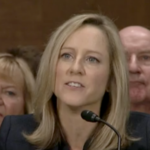A federal judge in Ohio has ruled in favor of a law firm that was sued by the Bureau of Consumer Financial Protection for violating the Fair Debt Collection Practices Act and the Consumer Financial Protection Act by misrepresenting the amount of attorney involvement in letters and calls made to individuals with unpaid debts.
The BCFP filed the lawsuit in April 2017, alleging that Weltman was sending collection letters that made it appear as though they came from a lawyer and calling consumers and falsely misrepresenting that a lawyer was involved. Weltman had vowed to defend the lawsuit, saying it was filed after the firm refused to be “strong-armed” into signing a consent order with the regulator.
The trial lasted four days and a jury returned a verdict saying that the collection letters did contain false or misleading information but that the BCFP had not proven its allegations that lawyers were not meaningfully involved in the process. The judge in the case, Judge Donald Nugent, opted to exercise his judicial prerogative and, while taking the jury’s verdict into consideration, issue his own ruling, which he did yesterday. Along with ruling in favor of the defendant, the judge also assessed all court costs be paid by the BCFP.
A copy of the ruling in the case of Consumer Financial Protection Bureau v. Weltman, Weinberg & Reis can be accessed by clicking here.
As pointed out by Judge Nugent in his ruling, there is no “specific test” for what constitutes meaningful involvement by an attorney. In assessing the information that was presented during the trial, the judge issued a series of “findings of fact/conclusions of law,” which included:
- Weltman is not practicing law when it sends a demand letter
- Weltman’s demand letters can be interpreted to imply that an attorney is “meaningfully involved” in the debt collection process
- There has never been a finding in any jurisdiction that Weltman’s letters or any other of its statements contain falsehoods or misrepresentations
- Plaintiff offered no evidence to show that any consumer was harmed by Weltman’s practice of identifying itself as a law firm in their demand letters
- Plaintiff offered no evidence to show that any consumer did or would be inclined to pay the amount sought in Weltman’s demand letters even if they did not owe the debt
- Weltman’s demand letters were truthful on their face
- Weltman attorneys were meaningfully and substantially involved in the debt collection process both before and after the issuance of the demand letters
- Even if Weltman’s letters had misrepresented the level of attorney involvement, Plaintiff could not prevail because there is no evidence that any consumer’s decision on when and whether to pay a debt was influenced by the inclusion of the attorney identifiers in Weltman’s demand letters
“Today’s Court Opinion is an affirmation of the confidence our law firm has maintained throughout the past three-and-a-half years in our operations and our employees,” said Scott Weltman, the managing partner of the firm, in a statement. “We would like to thank our valued clients for their unwavering support, and we look forward to continuing to provide the same quality representation that has been a hallmark of our creditors’ rights firm for the past 88 years.”









